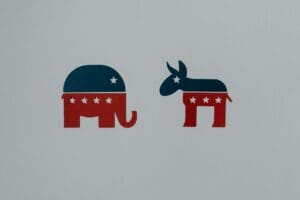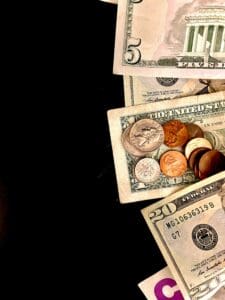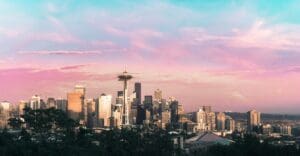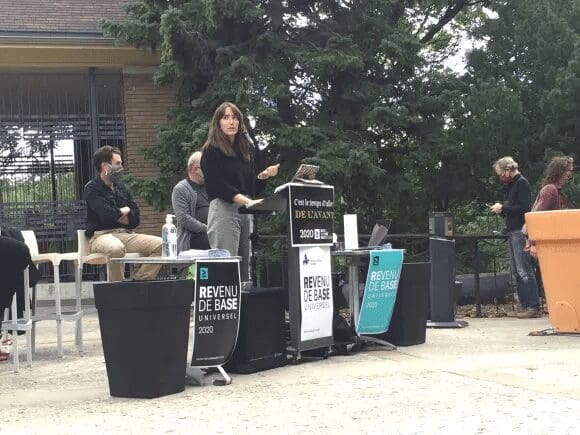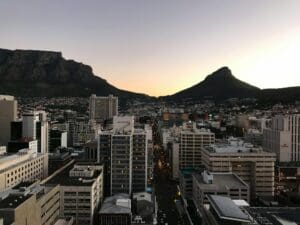By Diamond. —
In her large colourful glasses, UBI activist Claudia Leduc does not look like someone who has suffered from burnout. But, as is common with a lot of artists and cultural workers, she has had her fair share of struggles throughout the years. “Being primarily an artist and then a cultural worker, working galleries and stuff like that and then being freelance, I knew very well about the precarity of art,” she told me over the phone. “I just couldn’t handle anymore the work environment, I just like had a few work burnouts. So, a few burnouts here and there, and I really realize, okay, it’s the workplace that’s making me really crazy.”
Those unpleasant experiences led her to get involved with Revenu de Base Québec, a citizen initiative that advocates for universal basic income (UBI). UBI is a periodic payment the state would deliver to all its residents regardless of employment status or field of employment. Its goal is to reduce socioeconomic inequalities.
On Sept. 19, 2020, as part of the International Basic Income Week, Leduc and her organization set up an informational gathering at Espace Lafontaine to spread the word on UBI.
The main purpose of the gathering was to disseminate information about the concept, which is still not widely understood in Montreal. While the gathering was meant to discuss UBI for everyone, a significant chunk of it was devoted to the specific potential of that monetary policy in creative industries.


The Precarity of the Artist’s Life…
The gathering featured panel discussion between five activists, researchers, and community organizers. Approximately 30 people attended, in compliance with pandemic guidelines, with many more joining in remotely on Zoom.
Younes, a young man with a gray leather jacket, was one of the attendees. A student of public administration and an American politics fan, he first heard of UBI during Andrew Yang’s presidential campaign. He was immediately captivated by the idea. He thinks such a policy has an important role to play in creative industries.
“My cousin is a filmmaker, and she also has a lot of friends in that industry. It sucks that they have to work on the side in order to finish their projects,” he told me in French before the event. “She has been in the industry for six or seven years. It took her that long to submit her first movie to a festival.” The delay was mainly due to financial constraints, as it took time for her film crew to find funding to make their movie. Even after seven years, with solid art direction experience under her belt, Younes’s cousin has not made any money from filmmaking. On the contrary, she actually had to self-fund all of her equipment and her logistical costs for attending festivals.
…And How COVID-19 Made It Worse
Laurence Dubuc, a researcher in industrial relations at the Université de Montréal whose work focuses on the work conditions of artists, is not surprised at those financial outcomes. Her research shows that most artists make little to no money from their work and rely on day jobs to survive. COVID-19 has been particularly difficult for them, with many having their contracts cancelled or pushed back several months. Many also lost their day jobs that are often done in industries that have been hit hard by the pandemic, such as the service industry.
“If you talk to artists in your social circles who have benefitted from the Canadian Emergency Response Benefit (a COVID-19 emergency relief federal program that gives out $2,000 per month to any working-age Canadian resident who has been financially impacted by the pandemic), the majority of them will tell you that seldom in their career have they been able to rely on a monthly $2,000 income for several consecutive months,” she said in French during her panel presentation.
“With $2,000 a month, we are dangerously close to the poverty line in Quebec. It isn’t normal that access to a more or less decent income isn’t a guarantee in our modern societies.”
Her speech struck a chord with the crowd. Nearly everyone raised their hands when she asked who in attendance was an artist or a cultural worker. Financial precarity was a predicament they were all too familiar with. “I am an actress and a single mother. As time goes on, I struggle to reconcile these two identities,” shared Élisabeth Étienne, in an emotional testimony in French Dubuc read during her speech. “UBI would allow any person who has talent in a creative field, not only those who are economically privileged, to have a career in that field. Art needs to be representational, but how can we artists make it if we don’t have the means to?”
How Finances Underpin Other Barriers
Socioeconomic status is not the only barrier to representation in the arts. Younes shared with me his cousin’s struggle to convince her family of her choice to pursue an artistic career. “My family is from the Maghreb region. It is an environment that is very conservative, where you have to pursue the hard sciences as a career. Often, you don’t have any choice but to do it, because you have no money and you don’t want to end up homeless. It’s a huge risk to say ‘screw it, I’m going to follow my passion’,” he told me. His cousin had to repeatedly challenge her mother to be able to do what she really loved.
Younes thinks that if UBI existed, which would ensure the financial stability of an artistic path, she would not have had those issues.
And even when POC artists successfully make the leap into creative careers, they aren’t at the end of their financial troubles. “Discrimination problems are very present in the arts and culture industries. […] While now Indigenous artists benefit from some specific bursary programs, it is not the case for Black and other racialized artists”, Dubuc told me over the phone in French. “Things seem to have changed a bit with Black Lives Matter, where lots of institutions have released statements of solidarity […] but it is still performative. If you look at the leadership and the staff of many artistic institutions, it is still full of White people today.” She sees a direct link between the whiteness of artistic institutions and the smaller number of opportunities available to POC artists. The scarcity of opportunities have a direct negative impact on their income. According to her, the same mechanisms that work against POC and disabled people on the general job market are present in the cultural industries and exposes those artists to a higher likelihood of financial precarity.
The Road to Freedom
It is not a coincidence that UBI would ultimately be about claiming more freedom from all forms of oppression. “Freedom is independence. Freedom is the power to say no to those who want to give you orders”, said Pierre Madden, a member of Basic Income Montreal, in French during his impassioned panel presentation. “As if ‘work’ only meant having to bend over to the orders of someone who has more privilege than us.” Madden explains that the issue isn’t work in and of itself. He thinks the issue is rather employers who don’t pay their staff enough, “who take everything from them and subjugate them through hunger.”
He thinks that when UBI will be applied universally, we can all be collectively liberated and truly be able to do the work we want to do.
Leduc as well imagines many positive outcomes that would follow the implementation of UBI. “We’re going to be making so much more intelligent choices for the future. […] We’re going to have time to get involved as citizens to control what the government is doing,” she told me over the phone, sharing her vision of a direct democracy that would be able to effect real change since citizens would not be too worried about financial burdens to get politically involved. “We’re going to be all in charge of our choices instead of having representatives that we elect [to] decide for us.” In a society like that, everyone would be able to focus on things that are beyond their basic survival.
And the role of artists in all this? “We’re going to be able to just have trouble with what’s the meaning of life”, said Leduc with a laugh. “The artists are gonna go back to what they’re meant to do, which is think about those things and reflect on that.”
_______________________________________________
About the author: Diamond is a writer/journalist who lives in Montreal. She enjoys art, traveling and reading thought provoking books. Check out her website: diamondyao.com.




